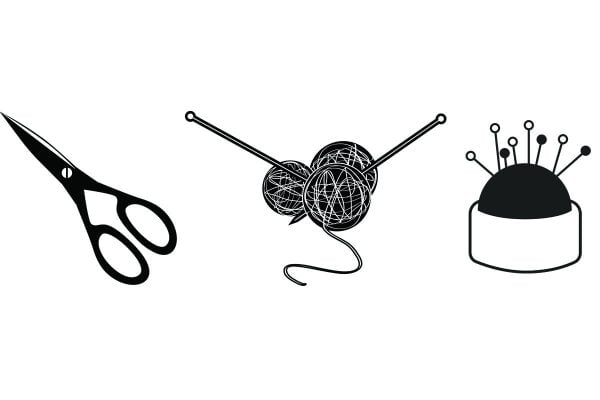TameBay reader Glenn today told me how he’d been a VeRO victim for selling a product sourced from an official distributor who in turn sourced from the manufacturer. The trouble was the manufacturer themselves was infringing someone else’s Intellectual Property (IP), but how was Glenn meant to know this?
In early September I received a Policy compliance (VeRO) for an apparent Copyright Breach for one of my listed items and my account teetered on the edge of suspension – the reason for issuing it applied to several other of my listed items and I risked a series of VeRO strikes. After numerous emails between an International Law Firm (representing the rights of the Intellectual Property owner) and myself I finally managed to get the VeRO strike removed.
Whilst I appreciate that every case is different I believe that others may be interested in the case and if it assists anybody to appeal their own VeRO strike then so much the better.
The offending item was a “Compilation CD” with numerous tracks from different artists, similar to a ‘Now that’s what I call Music’ CD. I have numerous compilation CDs on offer and often identify a particular artist or track in the title and I believe that it was the mention of a particular artist within the title which attracted attention to my item.
I concluded that the title identified my CD as an “Offending Product” because there are literally hundreds of CDs with this same artist and tracks mentioned within the body of CDs listed on eBay at any given time. Something to consider now that we have longer listing titles.
The initial notification from eBay (VeRO) contained contact details for the International Law Firm and I emailed them and asked them to provide the evidence that my CD breached Intellectual Property rights. After many emails back and forth I finally received a copy of a High Court ruling, by a High Court Judge, following a civil action by the Intellectual Property owner against a producer / distributor who had been distributing CDs by the artist in question.
I’m still not 100% convinced that the ruling applied to my listing and I pointed out that my CD was produced by a respected company and distributed by another. I also pointed out that the same CD was still on offer within eBay by others and more importantly was being sold by Amazon.
I questioned if they (the law firm) had contacted the producer, distributor or Amazon and if they had what were the responses. Several emails later the law firm stated that they were only following eBay policy for reporting Intellectual Property breaches. I informed them that in my opinion the VeRO was unlawful.
Regardless of whether Intellectual Property rights applied there was no evidence of my culpability. That that there was no way I could have identified that any party had any IP rights and that there was no evidence that I had acted recklessly or dishonestly.
What the deciding factor was I don’t know, but suspect that it my stated intention to inform the law society of the matter which resulted in a change of tack by the law firm. To their credit the law firm contacted eBay several times and persuaded them that even through the CD breached their clients IP rights, I as the seller had done nothing wrong.
Although not having the weight in law of a stated case it does provide an argument for appealing VeRO strikes.
Glenn’s story brings up some interesting questions. Should the IP owner through their legal team pursue retailers selling a product, or should they really be pursuing the producer / distributor? Should eBay be VeROing a seller for listing a product against the eBay Catalogue of media products? For compilation CDs supplied through normal distribution channels should seller have to individually check every track to make sure the producer of the CD has the IP rights covered?
On of the most insightful question Glenn asked me is “Why can’t eBay warn sellers that a product has been the subject of VeRO strikes for other sellers?” Why can’t eBay tag items in their catalogue and either block sellers from listing them, or simply display a message warning that the item is potentially infringing someone’s IP? At least that way sellers on eBay would have a option not to list that particular item and avoid receiving VeRO strikes.







9 Responses
I have no experience of CD’s, DVD’s and similar but I do have a problem in regard to a small number of Book titles. Each and every time I relist these Books ebay asks me if they are forgeries or not. I always verify that they are genuine but then the next time I relist there again is the question.
In the case of my Books they were published by a publisher who ceased to exist many years ago. On closure all the remaining stock was sold to a particular wholesaler who sold off the stock over several years and seems to have bought the rights as well because they reprinted many of the better sellers(I am not certain about the Books that I have because they were always a) amongst the cheapest and lower selling of the publishers titles and b) even today are very slow sellers(even tho’ they could just about be described as collectors items).
Also why would anybody in their right mind want to forge books that today retail for only £3 or £4?
I bought a number years ago. Then a friend and colleague was selling up because of medical problems and I bought him out and acquired more(more than I had originally). But as he got his stock from the same source that I did originally it is fair to assume that they all originated with the publisher.
I sell the occassional copy(I would like to sell the lot but I expect to have some in stock when I finally retire).
I am concerned about the idea of ebay marking listings in some way to show that there are possible problems with such as Copyright or being a Forgery. After all I would be happy to supply ebay with a copy so they can have them tested. But as I have the same question asked of me every time I relist would it mean that I had to send a copy off to ebay periodically for testing and who at the end of the day would pay for any sort of testing?
After all in regard to Books these were genuine publications. Any forgeries(and I find it hard to believe that any were forged after all they are slow selling very low priced Books)are unlikely to sell in large quantities or at higher prices than the originals so are unlikely to be making anybody a fortune(or indeed getting their money back).
I have a significant number of them and will continue to try to sell them but it is not a big seller.
“On of the most insightful question Glenn asked me is “Why can’t eBay warn sellers that a product has been the subject of VeRO strikes for other sellers?” Why can’t eBay tag items in their catalogue and either block sellers from listing them, or simply display a message warning that the item is potentially infringing someone’s IP? At least that way sellers on eBay would have a option not to list that particular item and avoid receiving VeRO strikes”
That would mean ebay actually becoming involved in VERO process whereas they are “just a venue”. From what I have read on ebay message boards and forums over the last 7 years, ebay don’t even do any checks to see if the VERO received are valid nevermind providing help to sellers caught in it’s clutches.
Great idea Glenn, but input to help sellers isn’t really ebay’s bag.
I had a similar experience a few years ago but a different product – an ultra violet pen with a built in U/V torch.
Items were removed without warning and previous buyers were sent an email from eBay telling them to ask for a refund.
I bought the items from a local wholesaler who in turn bought them from a larger distributor. I got a curt ‘this item infringes our patent’ when I queried the VeRO with the rights holder. There were (and still are) lots of similar or exactly the same items on eBay today.
I asked the rights holder why they were going after small sellers who bought the item in good faith and not going after the distributor who was infringing their patent, but they ignored all communication from me.
I was on tenterhooks for 3 months as my policy compliance went to ‘very low’ and further breaches could have led to a suspension.
What it told me is that eBay can pull the rug out from under our feet at any time and that we always need to have a back up plan and not rely too heavily on one venue.
Very interesting this, we recently had some products removed which we sourced directly from the company/manufacturer claiming that we were infringing their IP. All items were using stock images and text. Quite confusing and it appears we were the only ones affected. Other identical listings remain.
Re 2.1. When writing my description of a Book very often(perhaps 50%) of the time I will copy the publishers own description of the Book from such as the cover or their advertising material. Why? Well what they have written seems to me to be appropriate.
The other 50% of the time I read the publishers description and either ignore it completely or use just a few bits of it. After all at the end of the day I am trying to sell my stock. If I am not happy with what the publisher wrote why shouldn’t I use it? But then I often see that other sellers selling the same Book have also used the publishers words. So I wonder if there could be any complaints either from the Publisher or perhaps other sellers who have also used the publishers words either in total or in part?